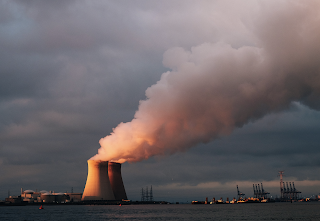By Markian Dobczansky, Associate Director, European Union Center
“We have sacrificed a lot for this,”
wrote Mustafa Nayyem, the Afghan-born Ukrainian journalist and politician, on November 8. On that day, the European Commission issued its
2023 Enlargement package, which recommended that the EU begin membership negotiations with Ukraine. In doing so, the EU’s executive agency recognized the country’s progress in implementing substantial reforms of its judicial institutions, curbing the influence of oligarchs, and investigating corruption.
Ukraine’s path toward the EU can be traced back to the Euromaidan protests. Nearly ten years ago, the Ukrainian government under Viktor Yanukovych backed out of signing an Association Agreement with the EU. In protest of this reversal, Nayyem wrote
a Facebook post calling people onto Kyiv’s Independence Square. This touched off what came to be known as the
Revolution of Dignity. Police violence took the lives of dozens of protesters before Yanukovych lost control of the situation and fled the country. Russia’s subsequent annexation of Crimea and the war in the Donbas indeed imposed a high cost on Ukraine.
In spite of that cost, the EU remained hesitant to offer Ukraine full membership after the revolution. It quickly signed an Association Agreement with the new government in March 2014, but it did not fundamentally revise its enlargement policy, leaving Ukraine without a membership perspective. The door to the EU remained closed.
Russia’s full-scale invasion in February 2022 changed the picture entirely. European publics and policymakers rallied around Ukraine. In June 2022, the
European Council unanimously granted Ukraine and neighboring Moldova candidate status. Less than eighteen months later, the Commission now recommends that the Council begin membership negotiations with both countries.
Ursula von der Leyen, the president of the European Commission, said, “Completing our Union is the call of history, the natural horizon of our Union.” The strong rhetoric is a rejoinder to Europeans suffering from
enlargement fatigue. It is also a reminder of the Commission’s purpose of representing the interests of the EU as a whole and using its executive power to coordinate the policies of member-states. Its recommendation now moves the action to the Council, the institution in which member-state interests are most strongly represented. European unity is likely to be
tested in negotiating Ukraine’s accession. Moreover, membership does not proceed along a pre-set schedule and much will depend on Ukraine’s continued reforms.
The Commission’s Enlargement package contains opinions about the membership prospects of other countries too, from Albania to Türkiye. Yet Ukraine stands out among them as a country fighting a war for its national survival while simultaneously pushing for membership in the EU. Along with liberating its territory still under occupation, Ukrainians see membership in the EU as a key war aim, one that gives meaning to their enormous sacrifices over the last ten years. Having committed itself to Ukraine so strongly, the stakes are also high for the EU.

Ukraine’s Sacrifice Paves Way for EU Membership Negotiations














